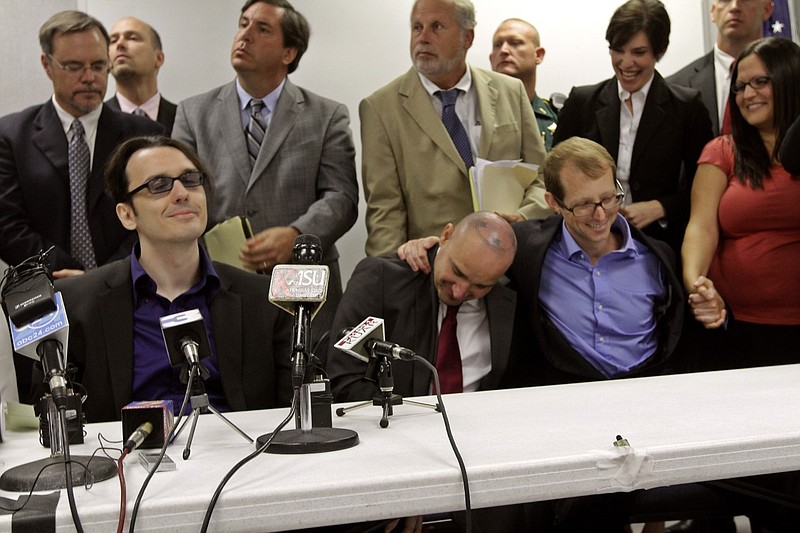Attorneys representing Damien Echols, one of three men convicted of the 1993 slaying of three boys found hog-tied in a drainage ditch near West Memphis, asked a judge Monday to permit new DNA testing in the case, hoping to exonerate the men.
Echols, along with Jason Baldwin and Jessie Misskelley, known as the West Memphis Three, were convicted in 1994 of the murders of the 8-year-old boys.
No DNA evidence ever linked them to the murders, and they were released from prison in 2011 after prosecutors allowed the men to walk free as part of a deal known as an Alford Plea.
They’ve since been trying to clear their names, and this new effort focuses on DNA testing of the ligatures used to tie the young boys. Echols' legal team found the ligatures recently at the West Memphis Police Department while reviewing remaining evidence.
In Monday's petition, Echols' attorneys cited Arkansas law that requires the preservation of evidence in violent crimes, requesting court approval to proceed with new DNA testing technology.
“The point of these evidentiary preservation provisions is not some empty record-keeping formality," the petition said.
“It is, rather, the possibility that such evidence might provide a future opportunity for scientifically testing the validity of certain results obtained in the criminal justice system."
